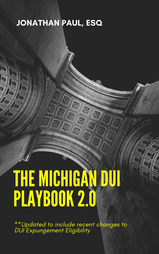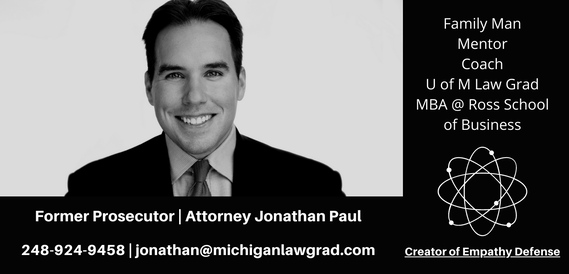**Update: Michigan DUI expungement has been signed into law
Do you want to remove a DUI conviction from your record?Call Me: 248-924-9458When the Michigan governor signed the drunk driving expungement bill, it opened the door for a clean slate for my past, present and future clients.
I represent many active DUI cases in Michigan, and our firm focuses on the client's journey, and how he/she finds themselves on the wrong side of the law. We spend months redefining their case, and creating a "true impression" with a series of proactive steps. For a DUI expungement, it's a look back on the client's life, and how they have grown, and what they have learned from their past incident. In fact, the law specifically states that the judge will do the following: "In making a determination whether to grant the petition to set aside a first violation the reviewing court may consider whether or not the petitioner has benefited from rehabilitative or educational programs, if any were ordered by the sentencing court, or whether such steps were taken by the petitioner before sentencing for the first violation operating while intoxicated offense conviction he or she is seeking to set aside." It goes on to say that "the reviewing court may deny the petition if it is not convinced that the petitioner has either availed himself or herself of rehabilitative or educational programming or benefited from rehabilitative or educational programming he or she has completed" What does this mean? You better hope your attorney who worked on your original DUI case had you take a proactive approach from day one. My past clients will be in an excellent position to hit this mark, but what about new expungement clients, who I did not work with on day one? Don't worry, I've come up with a unique and effective approach that will put the client in an excellent position to achieve your goal of a DUI expungement. You can either call me at 248-924-9458, email me at jonathan@michiganlawgrad.com or fill out the information form on this page, and I will get back to you in a timely manner. |
|


